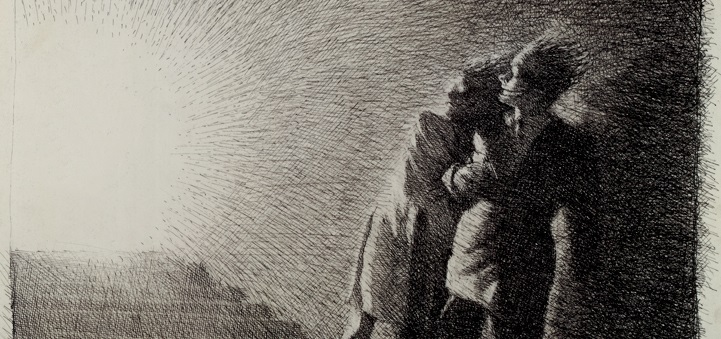Kicking Ourselves Out of Eden
We live in a Garden of Eden. Here in the United States we have a fertile land of Whole Foods and ready sources of no calorie flavored water. And like Adam and Eve, we don’t seem to realize that we too may be ejected from paradise.
In Genesis 2:15, we read “God took the ‘adam’ and placed him/her/them in the Garden of Eden to serve her and guard her.” The penultimate word is לְעָבְדָ֖הּ l’avdah contains the letters Ayin-bet-daled forming the root letters for service.
The last word וּלְשָׁמְרָֽהּ ool’shamrah is built upon the root letters Shin-mem-reysh that can mean to protect or preserve. We must be mindful to protect the planet, harvest only what we need and preserve the rest for the future benefit of others.
Like the gift of fertile land to Adam, we’ve been blessed with advantages. The Baby Boomers and following generations have had access to university education, modern health care and generally reliable economic systems. Our gardens are the lives fertilized and irrigated by such educational, health care and financial advantages. Many of us were able to produce well enough to secure a relatively stable life.
Adam’s first career ended when he faltered with a misguided apple bite. In one sense, the punishment consigned the future of humanity to a life of hard work and uncertainty. On the other hand, banishment from the Garden resulted in their fruitfulness and their development of life skills. From adversity came family growth and expanded opportunity. The sheltered child-like residents of Eden emerged to become the progenitors of humankind. They became gritty, determined people evolving as life demanded.
With expulsion they may have learned valuable life lessons; mistakes can bring the remorsefulness that helps refine our resolve to change, don’t take for granted the blessings we receive, and necessity is a great motivator for innovation.
Like Adam and Eve, we have tilled and tended the garden, bringing forth the fruits of a modern world with all of its comforts. As we return to the beginning of Torah each year, we revisit this story and its poignant twist. The story should be a wake up call for us to realize that we have failed in our sacred stewardship of protecting this modern Garden of Eden. With disregard for the environment, corporate greed, and disaffection for foreign genocides, we are biting the apple as Adam did. We tempt our own expulsion from lives of comfort, not just for ourselves but also for future generations.
It is long past the time to merely ponder the legacy we created for future generations. Even now, like the opening of Genesis, there is hope that the next chapters are the beginnings of a story. First, we must learn the lessons and act immediately to repair the damage. Our gardens are not places for us to retreat and hide from the world’s woes. If we don’t undertake the leadership needed to repair the world, future generations will be ejected from our Eden.
We don’t need tragedy to teach us the lessons of gratitude, innovation, and responsible stewardship. We read that lesson every year. We just don’t seem to learn well enough how to both serve and protect this world.
Rabbi Evan J. Krame






 Evan J. Krame was ordained as a rabbi by the
Evan J. Krame was ordained as a rabbi by the